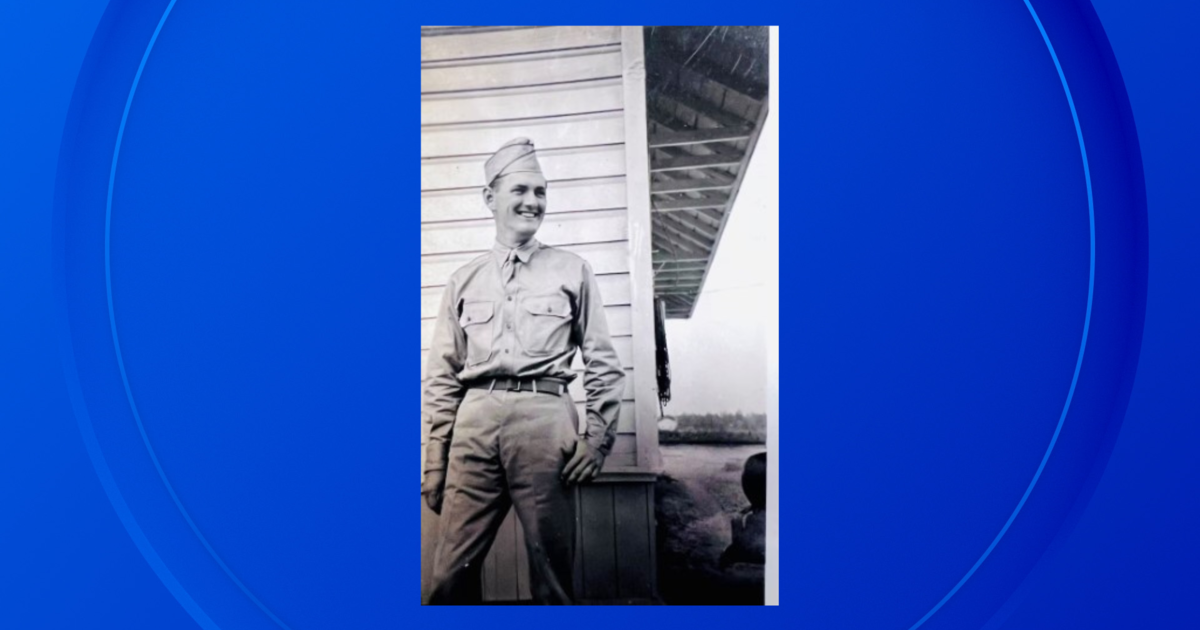Metro Detroiters Divided As U.S. Military Lifts Ban On Women In Combat
LANSING (WWJ/AP) - Metro Detroiters are left divided as news spread that the Pentagon is lifting its ban on women serving in combat.
Defense Secretary Leon Panetta made the announcement Thursday that more than 230,000 battlefront posts -- many in Army and Marine infantry units and in potentially elite commando jobs -- are now open to women. It will be up to the military service chiefs to recommend and defend whether women should be excluded from any of those more demanding and deadly positions, such as Navy SEALs or the Army's Delta Force.
The historic change, which was recommended by the Joint Chiefs of Staff, overturns a 1994 rule prohibiting women from being assigned to smaller ground combat units.
The change won't take place overnight: Service chiefs will have to develop plans for allowing women to seek the combat positions, a senior military official said. Some jobs may open as soon as this year, while assessments for others, such as special operations forces, may take longer. The services will have until January 2016 to make a case to that some positions should remain closed to women.
There long has been opposition to putting women in combat, based on questions of whether they have the necessary strength and stamina for certain jobs, or whether their presence might hurt unit cohesion.
But as news of Panetta's order got out, many members of Congress, including the Senate Armed Services Committee chairman, Sen. Carl Levin, D-Mich., announced their support.
"I support it. It reflects the reality of 21st century military operations," Levin said in a statement.
However, not everyone is happy with the move, including conservative activist Elaine Donnelly -- who heads up the Center for Military Readiness.
"It's a very big deal and its most unfortunate. It's certainly not going to be helpful to our women in the military, or our men," she said.
Several people called the WWJ Listener Comment Line at 248-455-7230, to share their opinions about women in combat. Here are just some of the comments we received:
-- "Females in combat would be a very, very, very bad idea, even just for the fact that there could be sexual harassment," one man said.
-- "I would say if the women are properly trained and have the aptitude, then go for it," another man said.
-- "Women even in the military is a disaster. The rape rate is high already and it would be twice as high when they go into combat," one man said.
-- "Women should definitely be allowed in combat. I'm looking forward to a lot of strong women making our military even better," one woman said.
-- "I've been in the military for 21 years and there's other ways to be promoted. If I'm not forced to serve on the front lines, I am happy with that," another woman said.
-- "I'm an 18 year veteran of the Army and I absolutely support women in combat roles. They get paid exactly the same as men do and they should have the same opportunities to excel," one man said.
-- "Women, if they want to, should be allowed to serve up front. However, if they have children at home, I don't think it's a good idea," one woman said.
Panetta's move comes in his final weeks as Pentagon chief and just days after President Barack Obama's inaugural speech in which he spoke passionately about equal rights for all. The new order expands the department's action of nearly a year ago to open about 14,500 combat positions to women, nearly all of them in the Army.
In addition to questions of strength and performance, there also have been suggestions that the American public would not tolerate large numbers of women being killed in war.
Under the 1994 Pentagon policy, women were prohibited from being assigned to ground combat units below the brigade level. A brigade is roughly 3,500 troops split into several battalions of about 800 soldiers each. Historically, brigades were based farther from the front lines, and they often included top command and support staff.
The necessities of combat in Iraq and Afghanistan, however, propelled women into jobs as medics, military police and intelligence officers that were sometimes attached -- but not formally assigned -- to battalions. So while a woman couldn't be assigned as an infantryman in a battalion going out on patrol, she could fly the helicopter supporting the unit, or move in to provide medical aid if troops were injured.
And these conflicts, where battlefield lines are blurred and insurgents can lurk around every corner, have made it almost impossible to keep women clear of combat.
Still, as recent surveys and experiences have shown, it will not be an easy transition. When the Marine Corps sought women to go through its tough infantry course last year, two volunteered and both failed to complete the course. And there may not be a wide clamoring from women for the more intense, dangerous and difficult jobs, including some infantry and commando positions.
Two lawsuits were filed last year challenging the Pentagon's ban on women serving in combat, adding pressure on officials to overturn the policy. And the military services have been studying the issue and surveying their forces to determine how it may affect performance and morale.
The Joint Chiefs have been meeting regularly on the matter and they unanimously agreed to send the recommendation to Panetta earlier this month.
A senior military official familiar with the discussions said the chiefs laid out three main principles to guide them as they move through the process. Those were to maintain America's effective fighting force, preserve military readiness and develop a process that would give all service members the best chance to succeed.
Women comprise about 14 percent of the 1.4 million active military personnel. More than 280,000 women have been sent to Iraq, Afghanistan or to jobs in neighboring nations in support of the wars. Of the more than 6,600 U.S. service members who have been killed, 152 have been women.
The senior military official said the military chiefs must report back to Panetta with their initial implementation plans by May 15.
TM and © Copyright 2013 CBS Radio Inc. and its relevant subsidiaries. CBS RADIO and EYE Logo TM and Copyright 2013 CBS Broadcasting Inc. Used under license. All Rights Reserved. This material may not be published, broadcast, rewritten, or redistributed. The Associated Press contributed to this report.



